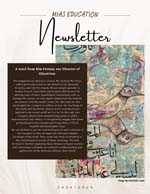MIAS education: MIAS voyagers
Feedback
I started voyaging with MIAS Education courses in Autumn 2021, after many years of pause from studying Ibn Arabi. The online courses have brought a wonderful opportunity to plunge into these beautiful texts again, in a more enriching way than I had ever experienced. The hermeneutical invitation coupled with the supportive group discussions have given me the confidence to trust my own intuition when reading Ibn Arabi. This encouragement has led me to start my PhD in a department of Heritage Studies, where I am researching how Ibn Arabi´s legacy can contribute to a re-imagination of cultural heritage. I have also returned to studying Arabic language, but now I look at letters and words in a different way: I don´t anymore just look for what specialists have written about them, but I have learnt to allow myself to be guided by my imagination. In this process I have also started to write poetry which I have been sharing in the different voyages.
I live in Portugal in a mountain, far from big cities and big Universities, but with the support from MIAS Education Team I feel connected to others that share the same passion. The WhatsApp group also provides a great ground for discussions, random questions and spontaneous insights. We might be deep upon the etymology of a word, a book recommendation, a dream, or finding surprising connections between texts. I hope to participate in the future journeys and continuously strengthen this connection over the years. I am immensely grateful for the gifts bestowed upon the voyagers, and I hope that in the future I can give something in return, perhaps by sharing the results of my research, supporting the future Blog, or in whatever way the Ocean may flow.” — Ana Ludovico
I’m so grateful for being in this group and to have the opportunity to learn more about Ibn ‘Arabi and to listen to many life experiences…. you have no idea of how much I enjoy the courses, the prayers, the people and their insights. I’m so grateful for finding this group and I’m so excited to start the next journey.” — Celia Salazar
Many thanks to the MIAS team for steering us on the ‘In each thing…’ journey. I loved the analogy of voyaging on the ocean. It gave the course an added dimension which took us from the technicality of Zoom into the imaginal realm – much more fitting for the subject of our study. It was an exciting, challenging and rich journey and I learned a lot from the process. I was delighted to have the opportunity to engage with texts that I’ve never read or studied before and it is always wonderful to meet and engage in shared enquiry with other Arabi enthusiasts. Wishing you well for your ongoing voyage.” — Patricia Taddei
Getting to know my ‘self’ is quite a big question right? I’ve been doing a bit of writing on it and I would say yes, to some extent, the course is providing this and is perhaps a gateway to going deeper. The group was amazing and I feel blessed and privileged to have been a part of it.” — Aishah Safdar
I think the MIAS team did a great job: in the right balance between guidance/facilitation and letting it happen, so to speak. I liked having a separate WhatsApp group that allowed for more informal give and take. I liked the participants a lot, some of whom seemed to know each other from other courses, and also already clearly had strong backgrounds in Sufi work. I am looking forward to more journeys together.” — Professor Nukhet Kardam
Meet the Education team
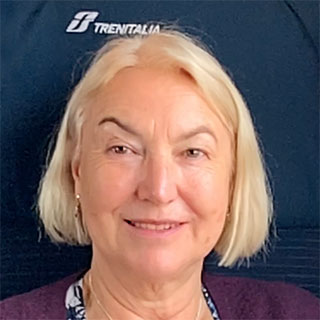
Cecilia Twinch is a Senior Research Fellow of the Muhyiddin Ibn ‘Arabi Society, Oxford. She studied Modern and Medieval Languages at Cambridge University. Besides working as a teacher, translator and editor, she has lectured on Ibn ‘Arabi and mysticism worldwide since 1990. She has had numerous articles and chapters in books published, many in Spanish, and her publications include an English translation from the Arabic, with Pablo Beneito, of Ibn ‘Arabi’s Contemplation of the Holy Mysteries and a translation of Know yourself: An explanation of the oneness of being (Ibn ‘Arabi/Balyani).
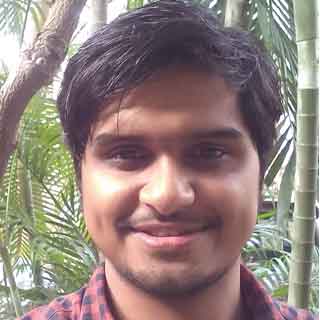
Bharatwaj Iyer is a PhD student in the Humanities and Social Sciences Department at the Indian Institute of Technology Bombay, where his doctoral work is on Heidegger’s philosophy of history and the place of the Islamic philosophical tradition. He has been part of MIAS Education for more than two years. He has attended courses on Ibn ʻArabī’s works taught by Dr Rim Feriani like “Embark Therein: from Noah’s Ark to Adam’s Fall”, “With Which Eye Do I see Him”, “I Fled from Myself to Him”, “In Each Thing He has a Sign”, and “The Voyage in Him by Him.” He has also held co-hosting responsibilities in several of the courses. Additionally, at MIAS Education, he has worked with the arrangement and coordination of the events at the Interdisciplinary Research Hub (IRH), where he also presented on “Heidegger, Ibn ‘Arabi and Dhikr: a phenomenology of remembrance” (5th March 2021). He led the panel discussion in the event “Ibn ‘Arabi’s Creative Imagination: Crossing Borders to Discover the Meaning of Being Human” jointly organised by the Muhyiddin Ibn Arabi Society and Language Acts and Worldmaking (King’s College London). Additionally, he has presented a paper on Heidegger and Ibn ʻArabī at the International Heidegger Conference arranged by Martin-Heidegger-Archive, Meßkirch, and the European Centre for Heidegger Studies (23rd September 2022). Recently, he published an research paper on Ibn ʻArabī and Ontological Pluralism – employing a Heideggerian framework – entitled “The Transimmanence of the Real: Ontological Pluralism in the School of Ibn ʻArabī” (June, 2023).

Patricia Benstein. In 1997, she obtained her first PhD in Education from the University of Sydney. In her doctoral thesis she analysed innovative approaches to teaching languages, in particular Gattegno’s Silent Way, which integrates the self and awareness in the learning and teaching processes. In 2008, she moved to Europe and enrolled in a PhD on Ibn Arabi under the guidance of Professor Denis Gril. She examined key concepts in Ibn Arabi’s works with a particular focus on the multi-faceted relationship between God and the human being. In 2016, she was awarded her second PhD in Spiritual Anthropology from the University of Aix-en-Provence.
Patricia is a qualified teacher, interpreter and translator; however, she has mainly lectured and researched at various universities in Australia, France and Germany. Her research areas include the multidimensional nature of human beings and innovative approaches to education. She is currently teaching English to future teachers at the Goethe University in Frankfurt, Germany. She has followed the Sufi path under the guidance of a Turkish Sheikh since her late 20s. As far as Sufism is concerned, she considers herself to be a permanent beginner. There is so much to discover, understand and integrate in this never-ending love
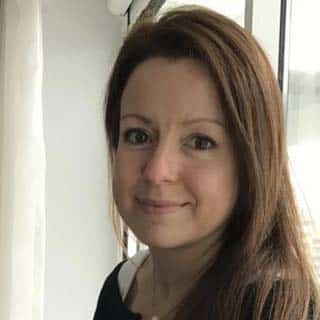
Ana Ludovico is a PhD student in the field of Heritage Studies, at University of Algarve, Portugal. She is looking into how Ibn Arabi´s legacy can inspire a re-imagination of cultural heritage. Key points in her research include notions of identity, ethics, imagination, time and space. Ana studied Anthropology at Durham University, and did her MA in Mysticism and Religious Experience at the University of Kent at Canterbury. Then she did an MA in Psychotherapy, focusing on the Imagination´s role in existential therapy while working with war refugees and with prisoners at a high security prison in the UK. Recently, she co-authored an article titled “Desiring the Sweet Perfume of Closeness in the Oscillating Tawajjuh of the Letter Rāʾ” (https://doi.org/10.3390/rel14060692 May 2023), exploring the science of letters by comparing a prayer and a poem in the contemplation of Mercy within the Akbarian tradition. Ana is a co-editor of the Blog Creative Encounters with Ibn Arabi and she co-hosts some MIAS Education courses.
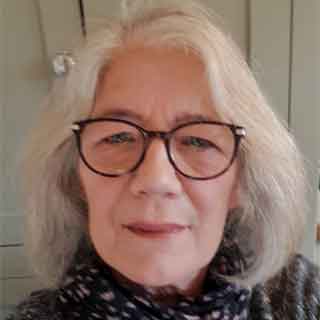
Yafiah Katherine Randall completed her doctorate on Sufism in Israel as practiced by Jews and Muslims and her work is published by Routledge under the title Sufism and Jewish-Muslim Relations: The Derekh Avraham Order in Israel. Her interviewees in Israel all spoke of the importance of the concepts of Ibn ‘Arabi to their understanding of the other as a mirror of the Divine and it became clear to her that the most significant component of conflict transformation is in knowing the other. Her research has also been translated into Hebrew. She has been involved in interfaith initiatives such as Radio Salaam Shalom in Bristol and the Israel-Palestine group at the Centre of Religions for Reconciliation and Peace at the University of Winchester. She has written a case study comparing the work of Radio Salaam Shalom and peace-makers in Israel in a book chapter, “Loving the ‘Enemy’: An Alternative Narrative on Jewish-Muslim Relations” in Paul Hedges (ed.), Controversies in Contemporary Religions, Volume 3: Issues in Traditions and Case Studies, (Praeger Multi-Volume Series, September 2014) and has published a paper “Entering Jerusalem: Deconstructing Assumptions on Identity as a Researcher and as a Sufi” for DISKUS, the academic journal of the British Association for the Study of Religions. For the past two years she has been co-hosting Beshara courses on Zoom. Yafiah is particularly interested in the role of hermeneutics in the creative imagination and the isthmus known as the barzakh in the work of Ibn ‘Arabi. At present she is co-authoring a book inspired by this topic. She is currently a trustee of the Muhyiddin Ibn ‘Arabi Society.
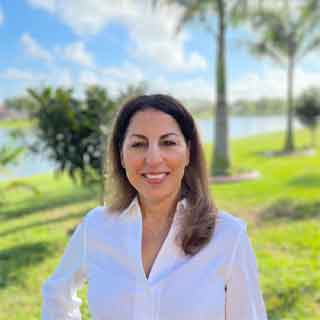
Wafa Al-Turk comes to MIAS Education with a deep passion (Ishk) for Islamic mysticism, religious studies and spirituality. She has journeyed in the oceans of Ibn Arabi, with Dr. Rim Feriani and many inspiring voyagers, through the courses “Embark therein: from Noah’s Ark to Adam’s Fall”, “With which eye do I see Him”, “In each thing He has a sign” and “I fled from myself to Him”. Wafa Al- Turk carries a BS in Architectural Studies from the University of Nebraska Lincoln. She is a yoga teacher, and has been teaching in her community for over 10 years.
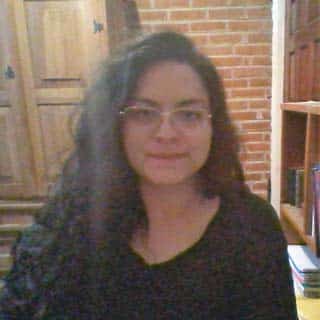
Celia Elena Salazar Cabrera is Deputy Educational Director at The Muhyiddin Ibn Arabi Society, UK. She is a psychologist who graduated from the National Autonomous University of Mexico. The title of Celia’s graduate thesis is: The Hermeneutics of the Symbolic Imagination: an encounter between the thought of Gilbert Durand, Henry Corbin and Carl Jung. She is very interested in comparative mysticism, and has contributed to several projects on the Middle East at UNAM’s Philological Research Institute including “The Literary Journey of the Myth of Siyawash from the Shahnameh of Ferdousi to the Medieval Sendebar” “Siyawash in the Mirror of Myth: Roots and Resonances” and “The Invisible Cities. Literature as a Refuge in Contexts of Violence” all of them led by her tutor Shekoufeh Mohammadi. She is currently pursuing a Master’s in Middle Eastern studies and her thesis focuses on Ibn ‘Arabi and the resonance of his thought with other mystical traditions. Her academic interests include the study of Arabic, Persian, and Hebrew. Celia is also a co-editor of the Blog Creative Encounters with Ibn ‘Arabi and has participated in several educational courses of MIAS.
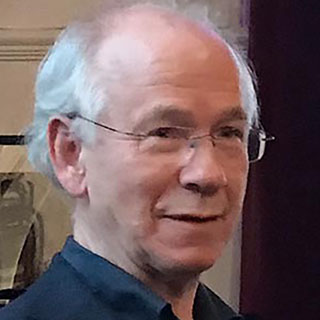
Richard Twinch trained at Cambridge University and the Architectural Association. He studied Ibn ‘Arabi at the Beshara Schools in the 1970s and 80s. He was a senior lecturer at the Prince of Wales’ Institute of Architecture and a tutor at Oxford Brooke’s University. He was External Examiner and then tutor to the Visual Islamic & Traditional Arts Department at the Royal College of Art (now The Prince’s Foundation School of Traditional Arts [/]). He practised architecture in Oxford for many years. He is currently a Trustee for the Muhyiddin Ibn ‘Arabi Society, Oxford.

